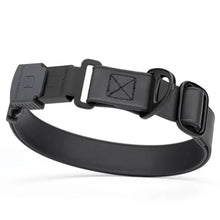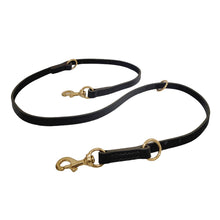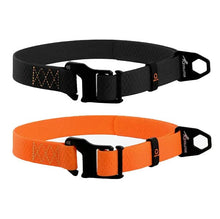Dog Bite Prevention And What To Do If Your Dog Bites Someone

Any dog can bite. Little dogs, big dogs, German shepherd dogs. To help educate owners and prevent dog bites, National Dog Bite Prevention Week takes place during the second week of April each year.
Dog Bite Prevention Week focuses on educating people about preventing dog bites to reduce the number of bites and to help protect dogs and their owners from getting involved in a bite situation.
Unfortunately, hundreds of thousands of people are bitten by dogs in the United States each year. Bite injuries in children are significantly higher than in adults. Service providers such as mail carriers and meter readers are also at high risk.
With 84-89 million dogs living in the United States, it should come as no surprise that bites do happen. And it’s not ‘mean’ dogs or certain breeds that bite. Even the friendliest dogs can bite in certain situations.

Forty-five percent of homes in the United States have at least one dog as a pet. 4.5 million people each year report being bitten by a dog. According to the American Veterinary Medical Association, in 2023, insurers paid out over $1.23 billion in liability claims related to dog bites and other dog-related injuries.
And, dog bites are expensive. Each dog bite claim costs an average of $58,545 so you’ll want to be sure that you do what you can to protect yourself and your dog from getting involved in an unwanted bite situation.
The American Animal Hospital Association reports that German shepherds made up 17.8% of dog bites. Pit bulls topped the list at 22.5%, followed by mixed breeds at 21.2%. So, what can you do to prevent a dog bite?
The best ways to prevent a dog bite include:
Choose your dog carefully
Carefully choose your German shepherd. Don’t get a dog on impulse. Talk to the breeder, rescue, and humane society. Meet the dog and spend time with it before you bring it home. If possible, let it meet your existing pets.

When choosing a dog, consider the lifestyle you will be providing it with. Don’t buy a high-drive working line dog if you expect it to live a couch potato lifestyle. Consider the personality of the dog and how it will fit into your household.
Socialize your dog
Socialize your dog around people, pets, sounds, places, and a variety of situations so that your dog is comfortable and knows how to behave in public and when people come to your home. By socializing your dog, you’re also teaching it that you are in control so your dog focuses on you rather than getting easily distracted.
Train your dog
Along with socialization, training is the best thing you can do to prevent bites. Training will give your dog confidence, teach it what your expectations are, and foster obedience so that your dog will look to you for guidance and direction.
Be vigilant
While you’re out with your dog, remain alert to what is going on around you. That’s not to say you can’t relax. But rather, be aware of people, children, loose dogs, and any other situation that could put your dog in an uncomfortable situation.

Be aware of your dog’s body language so that you can recognize when they are stressed, uncomfortable, showing signs of fear, or aggression. Remove your dog from tense situations before they escalate and potentially result in a bite.
Keep your dog healthy
Pain, sickness, injury, and old age-related health problems can affect your dog’s behavior. If your dog isn’t feeling well, protect it from unwanted interactions with people or other animals.
Control your pet
Be sure you can control your dog and protect it from confrontations with strangers coming to your home, such as repair people or delivery personnel. Be sure you have a secure area where you can put your dog to prevent unintended interactions. Give delivery personnel clear delivery instructions and place signs on your property so that they know you own a dog.
Don’t be afraid to say “no” to unwanted touching
If you’re uncomfortable with anyone or their kids petting your dog, simply tell them, “No.” Don’t be afraid of appearing rude. Simply let them know it’s not a good time to pet your dog, place yourself between you and your dog, and move away. Don’t let strange dogs approach your dog.

Obey the law
Obey leash laws, be sure you have a secure fence, and vaccinate your dog for rabies. Be sure your dog has rabies and ID tags as a microchip, in case you are ever separated or your dog does bite.
Get liability coverage on your homeowners or renters insurance
Contact your insurance company to make sure you have coverage for dog bites. If you don’t, add it to your policy before anything happens.
What To Do If Your Dog Bites Someone
So, despite your best efforts, what should you do if your dog bites someone?
How you’ll respond if your dog bites someone will obviously depend on who your dog bites and how severe the bite is. This information is not a replacement for legal or medical advice. Each case will be unique but some general guidelines are:
Secure your dog
The first thing you want to do is to move your dog away from the injured person. Stay calm so as not to upset your dog even more. Secure your dog in the house, room, or car so that your dog and everyone else are safe.

Call 911 if you’re the victim of a crime
If the injured person is a trespasser, intruder, burglar, or has victimized you, call 911.
Help the injured person
Get medical help for the injured person and be concerned for their wellbeing. Take them seriously to make sure they’re okay and receive medical treatment if needed.
Get their information
Much like a car accident, trade information. Get the contact information for the injured person.
Talk to potential witnesses
Get the names and information of any witnesses. Ask them if they have any pictures or videos that they will give you.

Take notes
Write down what happened before the bite occurred and what happened at the time of the bite so that you don’t forget any important details.
Take pictures and video
Take pictures and video of the dog bite and the surrounding scene, including the injured person’s license plate.
Cooperate with police and animal control
Cooperate with law enforcement and provide copies of your vaccination records.
Check for surveillance video
Check the area to see if there are any home security cameras or surveillance video.

Don’t pay for any medical expenses or property
Even if you intend to pay the expenses related to the bite, don’t exchange money without a written agreement.
See your vet
Be sure your dog doesn’t have a medical issue going on that caused them to behave out of the ordinary.
Get Legal Advice
Each state has dog bite laws and each bite is unique. For instance, some states have a strict liability rule which means you are responsible unless someone was tormenting your dog or trespassing on your property.
But, some states consider the role of everyone involved in the bite, which is called comparative negligence because many factors can contribute to a bite and sometimes the victim’s behavior makes them at fault, at least in part.

For example, let’s say your dog bit someone who ran through your campsite, or their finger got nipped when they fed your dog a tasty treat at the pet store without your permission. In those cases, the victim may be responsible and your liability would be reduced. This is why it’s so important to write down the all details while they’re fresh in your mind, talk to witnesses, and gather video evidence.
You’ll also want to know if your state has a one-bite rule, which basically would mean you had no idea your dog would bite so you couldn’t have prevented it from happening. Conversely, if your dog has a bite history, you may have legal problems and need an attorney.
Get help
If your dog does bite, get real with yourself and try to figure out why it happened.
How serious was it?
Was it a true bite or playful over-exuberance?
Can you identify the trigger?
Did your dog exhibit body language to show they were uncomfortable?
Was your dog protecting you or your property?

If you can determine why the bite happened, it will help you to take steps to prevent it from happening again. This may involve professional training to redirect a behavior, consulting a behaviorist, or removing your dog from certain situations (for example, a dog park).
We hope you find this information helpful and that you never find yourself in a dog bite situation. But if you do, be sure to stay calm and take the steps needed to help the victim as well as you and your dog. As always, please feel free to share with your friends.
You might also like: Dog Park Etiquette For German Shepherd Owners: Guidelines For A Positive And Safe Dog Park Experience






















